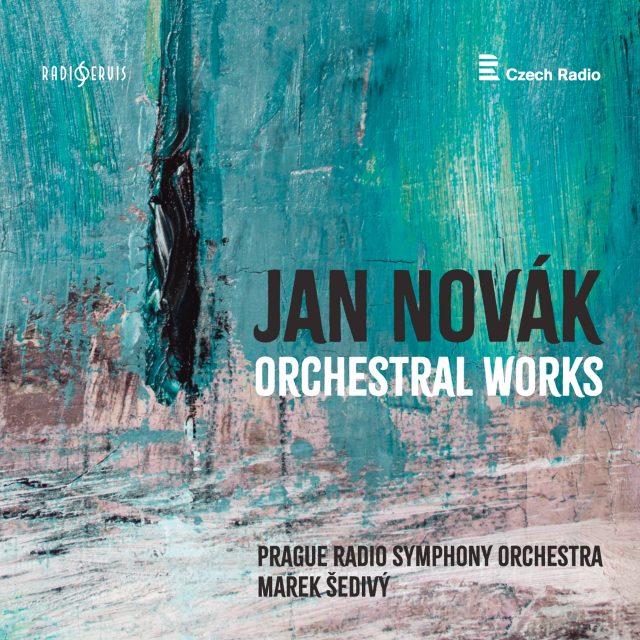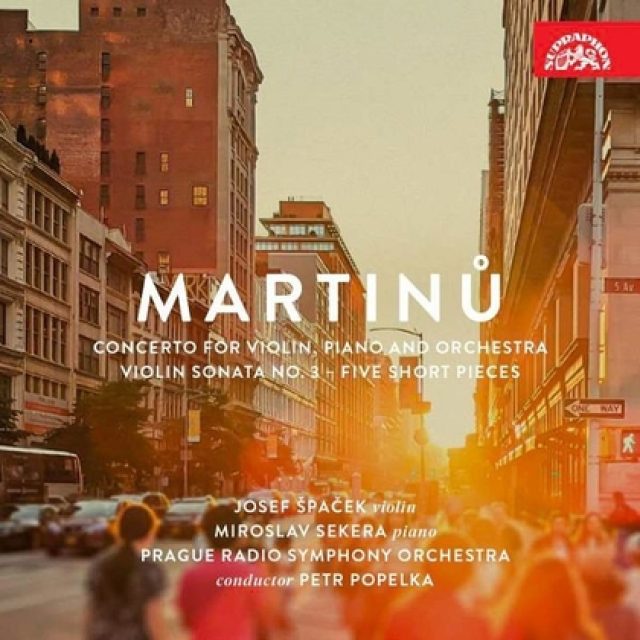Interview with cellist Michal Kaňka
The last time season ticket holders came across Michal Kaňka, who has been a soloist with the Prague Radio Symphony Orchestra since 2003, was at the opening concert of the 83rd season. Then, in September 2009, he performed probably his favourite piece, Antonín Dvořák’s Concerto in B minor. The master cellist is an energetic, active, open person who is forever searching for and looking forward to studying further opuses…
Relatively often, perhaps ever more often, you perform less known Russian and Soviet composers. How long have you had Kalabevsky in your repertoire?
I was actually “forced” to learn his Second Concerto for Cello in C major. In 1996 I received an offer to appear with an orchestra in Wuppertal in Germany, but the condition was that I play that concerto. I recall that for some time I tried to get out of it, and offered to do Dvořák and other concertos from my repertoire. But the organiser wouldn’t back down, so I got my hands on the score and a great recording by the Swedish cellist Lidström. From the first listening I liked the concerto immensely. I hadn’t known Kalabevsky’s music at all before – paradoxically, not even his first concerto, which is popular at music schools. (It’s nice, but a little instructional, so I don’t plan to study it).
How exactly did Kalabevsky’s Second Concerto win you over?
It’s extremely complex. There are great contrasts in it, alternating virtuoso parts with beautiful lyrical sections, and it contains two striking cadences. In one part there is even saxophone, which helps to make the orchestral sound special. The piece creates a great musical arc (28 minutes), which begins and ends with pianissimo. That may be a beautiful intention, but I think that it would be better served by some more striking conclusion. In any case, that was the will of the composer.
What other rarely performed pieces by Russian and Soviet composers do you regard as worthy of the interest of cellists and audiences?
A few years back I “discovered†a concerto by Nikolai Myaskovsky, who, by the way, was Kalabevsky’s teacher. It is certainly a concerto that ought to be in the repertoire of every soloist. It doesn’t require as large an orchestra as the Kalabevsky, but I’m still planning to offer it to symphony orchestras. And I believe that we’ll hear it during some season of the Prague Radio Symphony Orchestra in the near future. When it comes to Russian and Soviet music, we’re used to hearing Tchaikovsky’s Rococo Variations, Shostakovich’s concertos, or Prokofiev. Well known composers like Khachaturian, Glazunov, Borodin, Cui, Lyadov, and Cherepnin also wrote orchestral pieces, which unfortunately aren’t that attractive to listeners. In these cases I prefer to perform their chamber music, whether it be the cello sonatas of Mieczysław Weinberg, Anton Rubinstein, the aforementioned Nikolai Myaskovsky, Alexander Borodin or Alexander Cherepnin.
We’re at the close of the season? What kind of season have you had?
Pretty full, and not just because I’ve been teaching solo cello at the Academy of Performing Arts in Prague since the autumn – I’ve also been involved in numerous projects that have kept me extremely busy, work wise. Principal among those was my annual solo trip to Japan, and recording two CDs (one of Alexander Cherepnin’s chamber compositions, one featuring three classic Czech concertos by the composers Kraft, Vranický and Rejcha, accompanied by the Prague Chamber Orchestra). There was also the chairmanship of the International Cello Competition at the Prague Spring and of course my work with the Prazak Quartet, which includes alongside the annual recording of three CDs concerts around Europe and two more Japanese tours.
That’s almost superhuman…but as I noted in my introduction, you’re bursting with energy. So in conclusion I’ll ask if this year too you managed to go skiing in Austria? (And if so, don’t visions of breaking your arm cause you stress?)
This season once again I couldn’t say no to our regular pre-Christmas skiing in the Alps. For many years, my family and I have a tradition of going there before and during the Christmas holidays. That time of year has its advantages – there are few skiers on the slopes, thanks to which I don’t fear some injury. I myself feel very safe on skis. When we were younger my wife and I took an acrobatic skiing course, and I think I’m able to cope with non-traditional situations…



